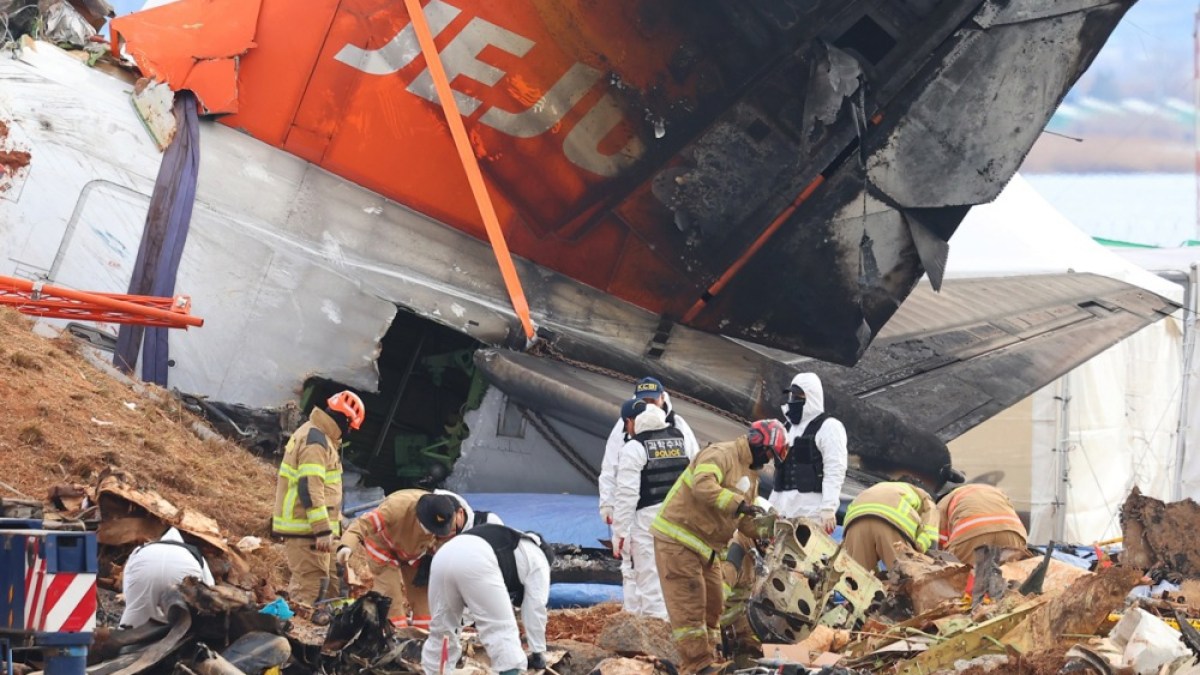Jeju Air’s Flight 7C2216 was flying from Thailand to Muan International Airport in South Korea on December 29, when it belly-landed, slammed into a concrete barrier and exploded, killing 179 of the 181 passengers and crew.
The worst aviation disaster to ever occur on South Korean soil.
The analysis revealed that both the CVR and FDR data were not taken into account when the aircraft collided with the localiser during the four minutes, according to South Korea’s transportation ministry, which referenced the two recording devices on Saturday.
The runway’s end-to-air barrier, which aids in aircraft landings, is credited with escalating the severity of the crash.
The voice recorder was initially analysed in South Korea, and, when data was found to be missing, was sent to a United States National Transportation Safety Board laboratory, the ministry said.
Authorities are now looking into what happened, but it appears that the boxes that contained the information from the flight’s final moments lost data.
According to the ministry, “Plans are in place to look into the cause of the data loss during the ongoing accident investigation.”
Sim Jai-dong, a former transport ministry accident investigator, told Reuters news agency that the discovery of the missing data was surprising and suggested all power, including backup, may have been cut in the plane, which is rare.
The boxes were important to the investigation, according to the investigators, but they added they would continue to investigate the cause of the collision.
A bird strike, faulty landing gear, and the runway barrier have been identified as potential issues by investigators.
Before making a second landing, the pilot had also been alerted to a bird strike and a turnaround.
But instead of making a full go-about, the Boeing 737-800 jet took a sharp turn and approached the airport’s single runway from the opposite end, crash-landing without landing gear deployed.
This week, lead investigator Lee Seung-yeol told reporters that “feathers were found” in one of the plane’s recovered engines, but cautioned a bird strike does not lead to an immediate engine failure.
Authorities have searched Jeju Air’s Seoul office, a regional aviation office in the southwest city, and the Muan airport where the accident occurred.
Additionally, they forbade the country’s chief executive of Jeju Air from leaving.

Leave a Reply